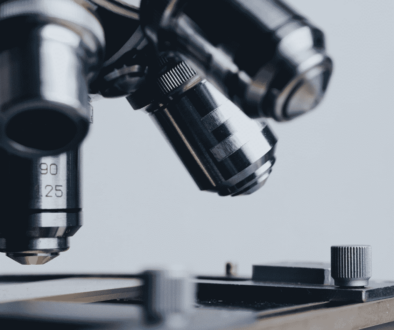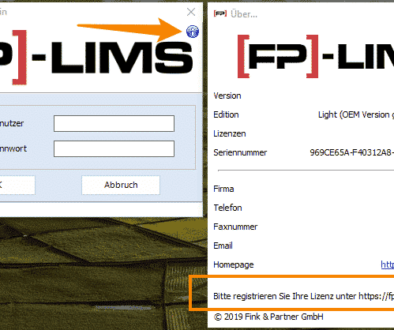Data integrity in quality control of laboratories
Data integrity in quality control – a term that circulates in many laboratories. But what does it actually mean? Why should this topic be given high priority? And how do you ensure data integrity in quality control? Read this and more in the following article.
Data Integrity - Definition & Types

Definition Data Integrity: What is data integrity anyway?
The term stands for maintaining the consistency, accuracy, and trustworthiness of data throughout its lifecycle. To maintain integrity, data must not be altered during transmission. Measures must be taken to ensure that data cannot be altered by an unauthorized person or program. Various processes, rules and standards are implemented to ensure data integrity.
Types of Data Integrity
Within data integrity, a distinction is made between physical and logical data integrity.
What is the difference between data integrity and data security?
Data integrity and data security are two very different things. Data security refers to the protection of data, while data integrity refers to the trustworthiness of data.
Data security focuses on minimizing the risk of losing intellectual property, business documents, health data, emails, trade secrets, etc. Data security tactics include permission management, data classification, identity and access management, threat detection, and security analytics.


Why is data integrity so important in laboratory quality control?
To keep in mind the importance of data integrity in laboratory quality control, it is important to realize that laboratories are important data producers. All the data that the laboratory produces through its daily testing is very valuable to the organization. Professional data management enables the identification of trends, provides early warning of risks or quality deviations, helps with customer support and much more.
It is important to ensure that laboratory data that is completely accurate and resilient can be relied upon to make an extremely important business decision. Companies make data-driven business decisions all the time, and if that data lacks integrity, those decisions can have a dramatic impact on business goals.
Data integrity: many laboratories have some catching up to do
According to our experience of more than 30 years, there are still quite a few companies worldwide that underestimate the high relevance of reliable laboratory data. Among others, we observe the following deficiencies/procedures again and again, which have a negative impact on the data integrity of the laboratory data:
- Measurement results are entered manually in Excel lists or other error-prone and editable media
- Records are incomplete
- Records are faulty
- Data are not sufficiently protected
- Backdating/postdating/missing signature
3 simple steps to ensure data integrity in the lab
But what specifically can you do now to get to grips with the issue of “data integrity in the quality control laboratory“? Just a few points can help to immensely influence the data integrity risk in your company.
1 Train your employees
Many data integrity issues can be traced back to human error. Training can work wonders here. Explain to your employees the value of the data they generate and why it is important to maintain it accurately and correctly.
2 Question your laboratory processes
From sample transfer to release of results to archiving of data, your laboratory workflow – and consequently your data flow – should be well documented. This not only allows you to trace the complete data flow, but also reveals potential risks that need to be optimized.
3 Automate data processes in the lab
Manual data entry not infrequently results in inaccurate data: The transferred data is not original, may be duplicated, and may be inaccurate. The good news is that laboratory processes can be easily automated due to their structure, which can almost completely reduce errors in data acquisition. LIMS software enables real-time data and metadata capture, completely eliminating paper-based or hybrid solutions.
LIMS software as an important factor for data integrity in quality control
Today more than ever, companies are required to take a holistic view of their laboratory processes in order to uncover potential for improvement and make necessary decisions with regard to ensuring data integrity in quality control. They need to constantly optimize and automate their processes to remain competitive.
A LIMS software is a very good software solution to use when samples are processed and workflows are structured. A LIMS assists with sample processing and related workflows – with the goal of optimizing processes, which also benefits data integrity.
A laboratory information and management system LIMS stores all the data generated in your laboratory on a daily basis and supports you by automating data exchange and fully integrating all instruments. This ensures transparent tracking of your samples throughout the entire processing cycle and ensures ideal data and quality management.
Why should you rely on FP-LIMS?
In over 30 years of company history, Fink & Partner has developed a high-performance LIMS software that is valued above all for its high flexibility. It is suitable for any level of requirements: Whether a single installation with only one connected measuring device or an extensive, globally operating laboratory complex with hundreds of measuring devices – [FP]-LIMS software offers the right solution for every challenge and is the LIMS software for efficient laboratory management. In doing so, our LIMS software fully adapts to your individual requirements and processes – not the other way around.


